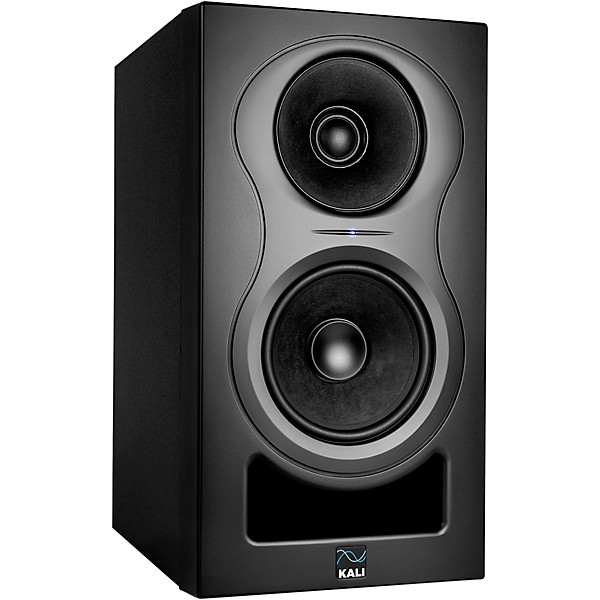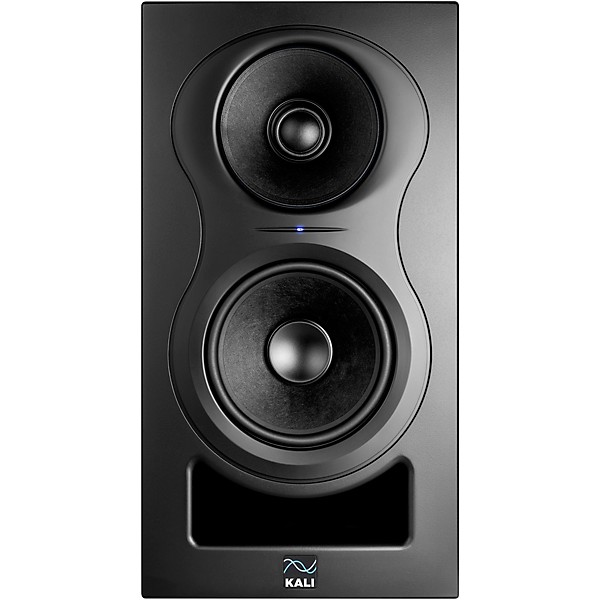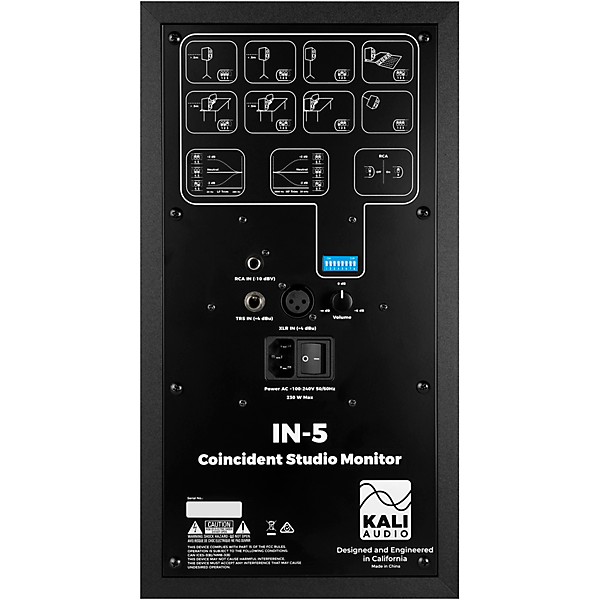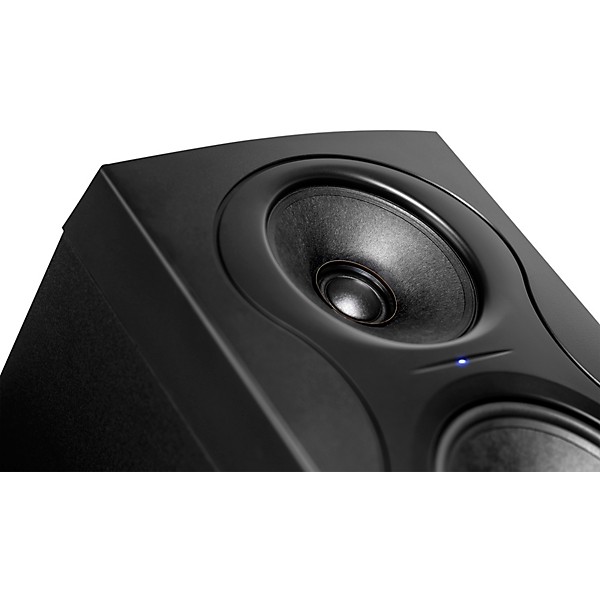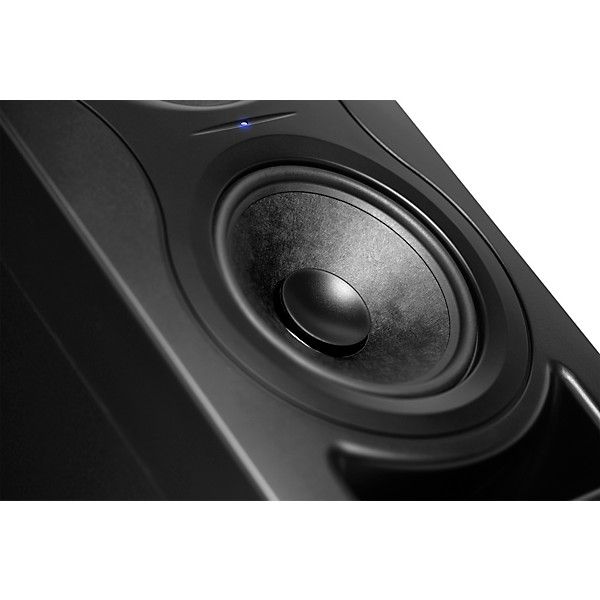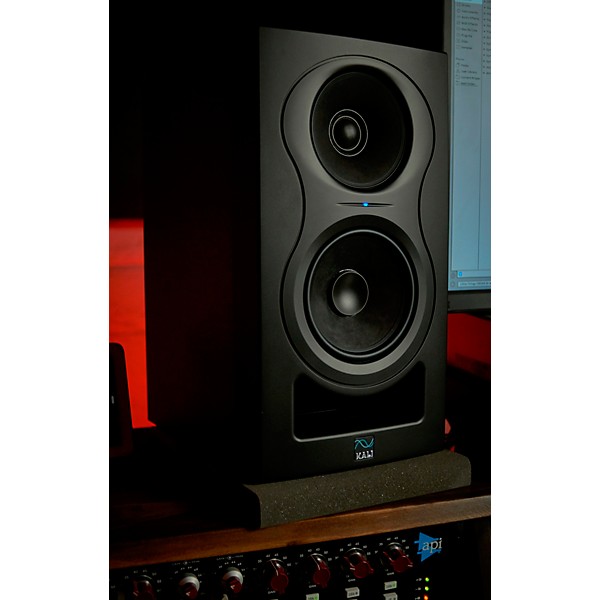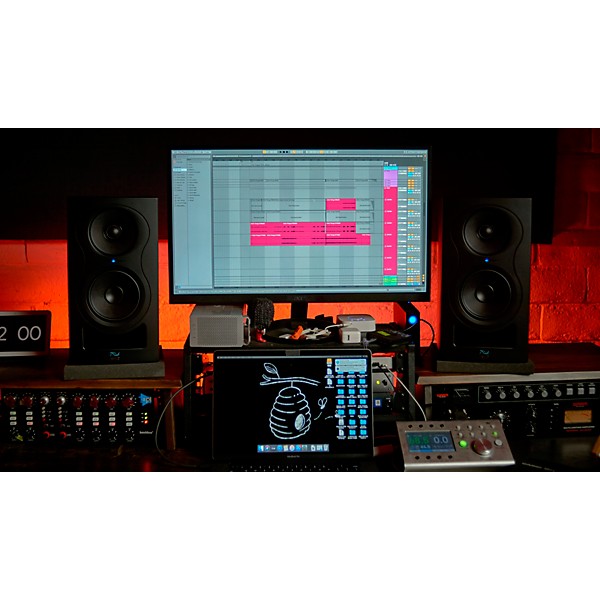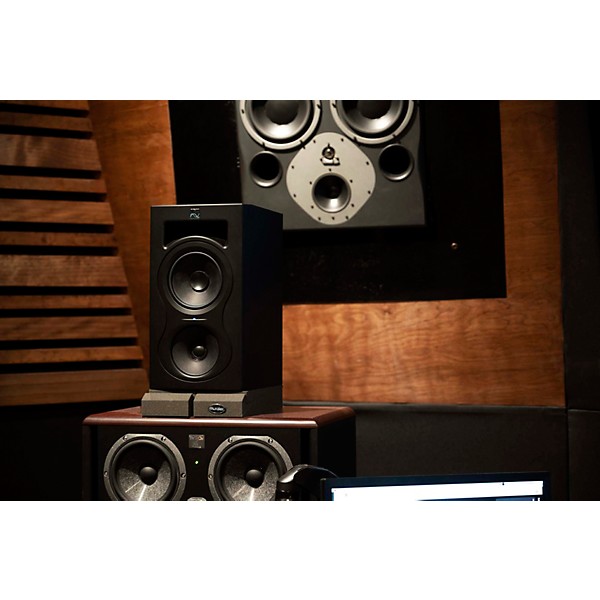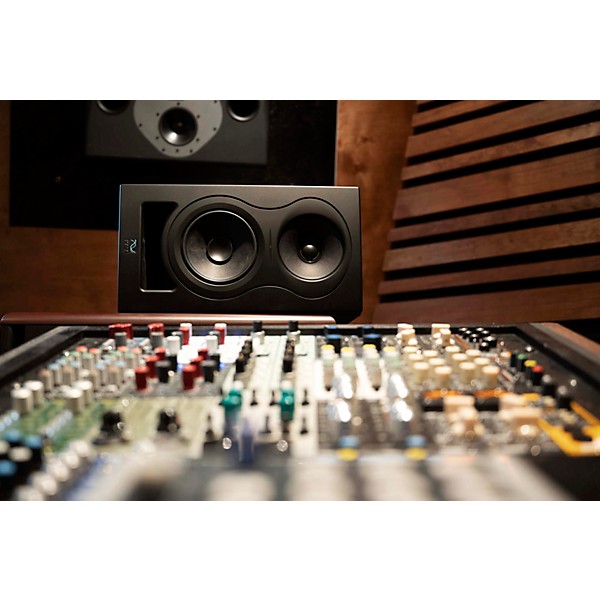- Popular Brands
Open Box Kali Audio IN-5 5" 3-Way Powered Studio Monitor Level 1
Videos (4)
View All
FAQ Friday: How the $%*! do I set up my speakers in my room?

FAQ Friday: Can I put my speakers on their sides?

Which Kali Speaker Should I Buy?

Kali Audio IN-5
Description
Because of the coincident placement of the mid-range and tweeter, and the crossover of the woofer to the mid-range (280Hz), the IN-5 is an acoustic point source. This gives it an ideal directivity characteristic for a studio monitor. You will be able to hear an excellent stereo image, with details placed clearly and consistently.
Substantial work was done to optimize the mid-range driver not only for its own acoustic performance, but also for its role as the waveguide for the tweeter. The shape is very precise to allow for controlled directivity at mid range to tweeter crossover, ensuring accurate summing both on- and off-axis. Excursion on the mid-range is limited to less than 1 mm peak to peak, so that the oscillation of the mid-range does not have a negative effect on the tweeter.
The first in Kali’s “second wave” of loudspeakers, the IN-5 features a Class-D amp with a 12dB reduction in self noise, an upgraded DSP section and upgraded transducers for better reliability.
On top of this, the IN-5 incorporates all of the benefits of Kali's Lone Pine series monitors. These include optimized woofers for powerful, clean bass, a front-firing port tube and their own boundary compensation EQs.
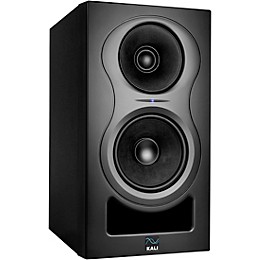
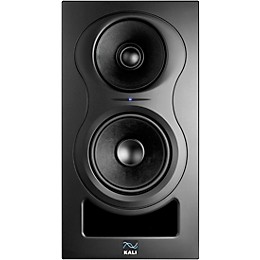
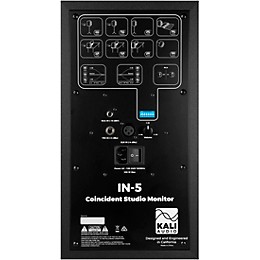
Features
- Speaker acts as an acoustic point source; there is no lobing off-axis
- Highly detailed imaging for highly accurate mixing
- Easy to perceive subtle details; allows users to work with more confidence and efficiency
- No air distortion from the coaxial speakers
- Greater dynamic range
- Accurate, clean amplification
- Low amplifier self-noise
- Individual DSP sections for each driver
- Reliable power
- Low heat generation
Specs
- Powered: Yes
- Amplifier class: D
- Power configuration: Tri-amped
- LF power: 80W
- Mid-range power: 40W
- HF power: 40W
- Total power: 160W
- LF driver: 5" paper
- Mid-range driver: 4" optimized profile paper
- HF driver: 1" textile dome
- Frequency response: (-10dB) 39Hz–25kHz
- Frequency range: (±3dB) 47Hz–21kHz
- LF to mid-range crossover: 280Hz
- Mid-range to HF crossover: 2,800Hz
- SPL: 85dB continuous at 2.2 m with 20dB headroom
- Max SPL: 112dB
Reviews
4
1 Reviews
100%
of respondents would recommend this to a friend
- Home Studio1
- Limited Functions1
- Experienced1
- Easy To Use1
- Good Audio1
Reviewed by 1 customers
I am glad I made the purchase!
submitted5 years ago
byLeng X
fromTurlock CA
The sound quality is excellent! You can still hear a little bit of the hiss from the tweeter but that's just me for being a bit critical. NOTE: If you insert both the TRS and an XLR on the back, only the module that is connected with the TRS will work in terms of projecting the sound. The XLR will be bypassed and there will be no sound via the XLR cable. This is caused by the design of the internal electronics of the speaker. Be careful with the volume knob on the back. One of my speakers came with the knob slightly bent upward. Still turns fine, just not that pleasing to the eye.
- Previous
- 1
- Next
Q&A
Have a question about this product? Our expert Gear Advisers have the answers.
No results but…
You can be the first to ask a new question.
It may be Answered within 48 hours.


